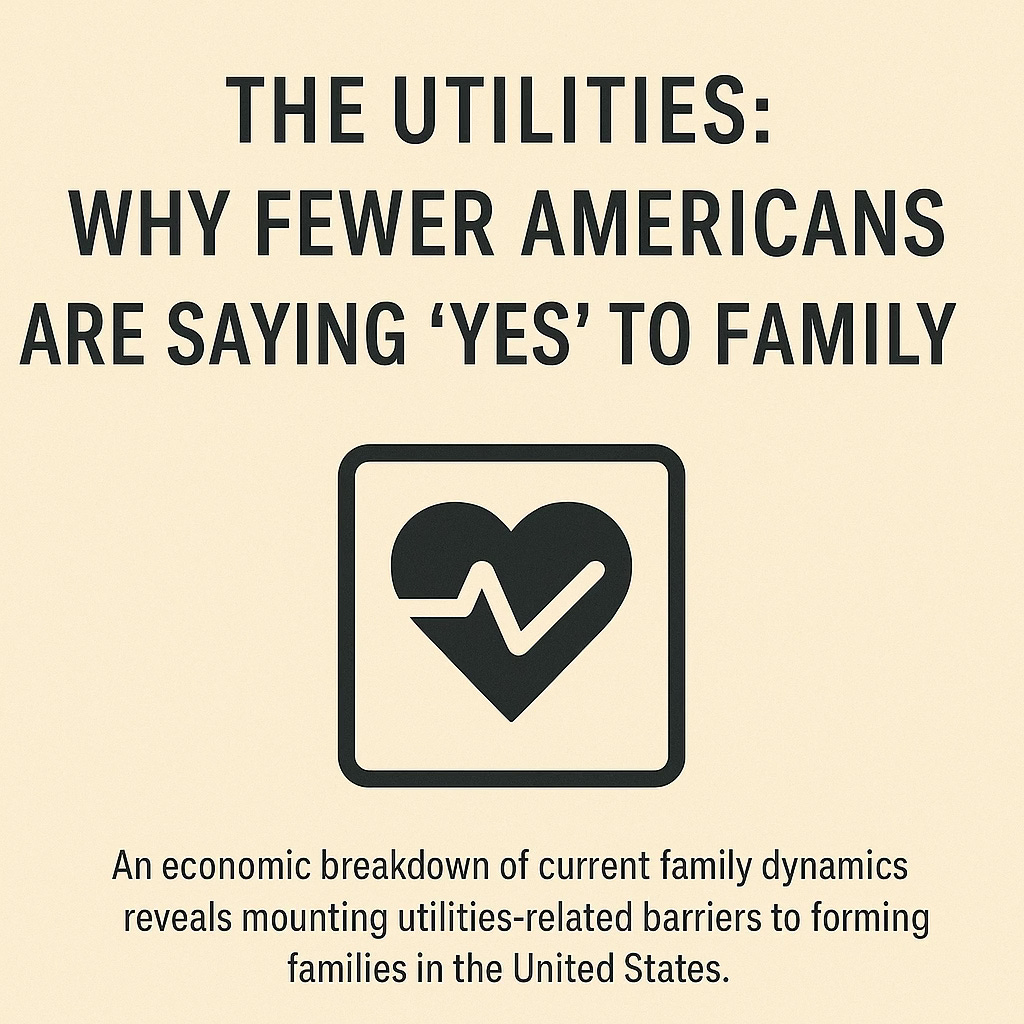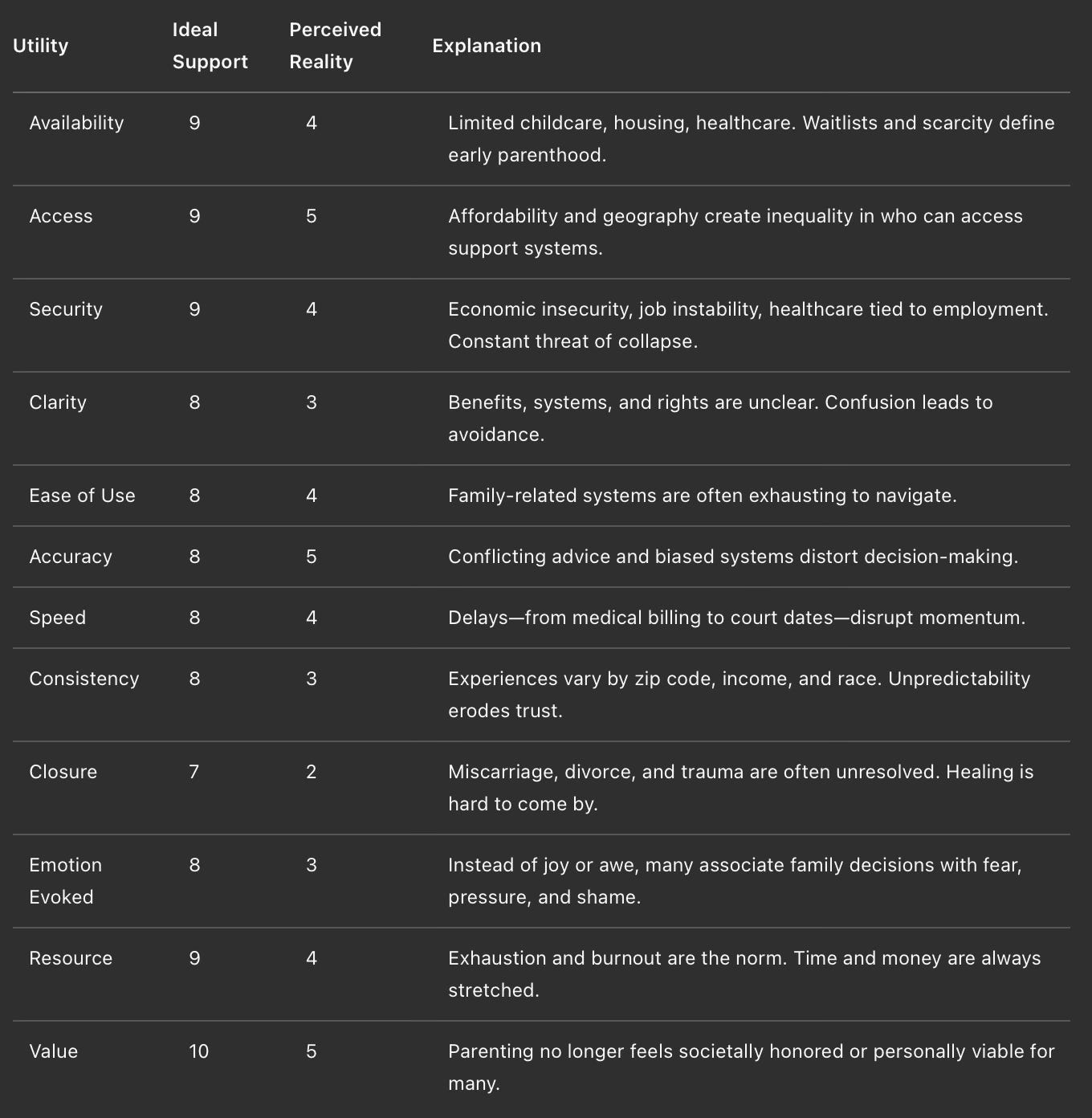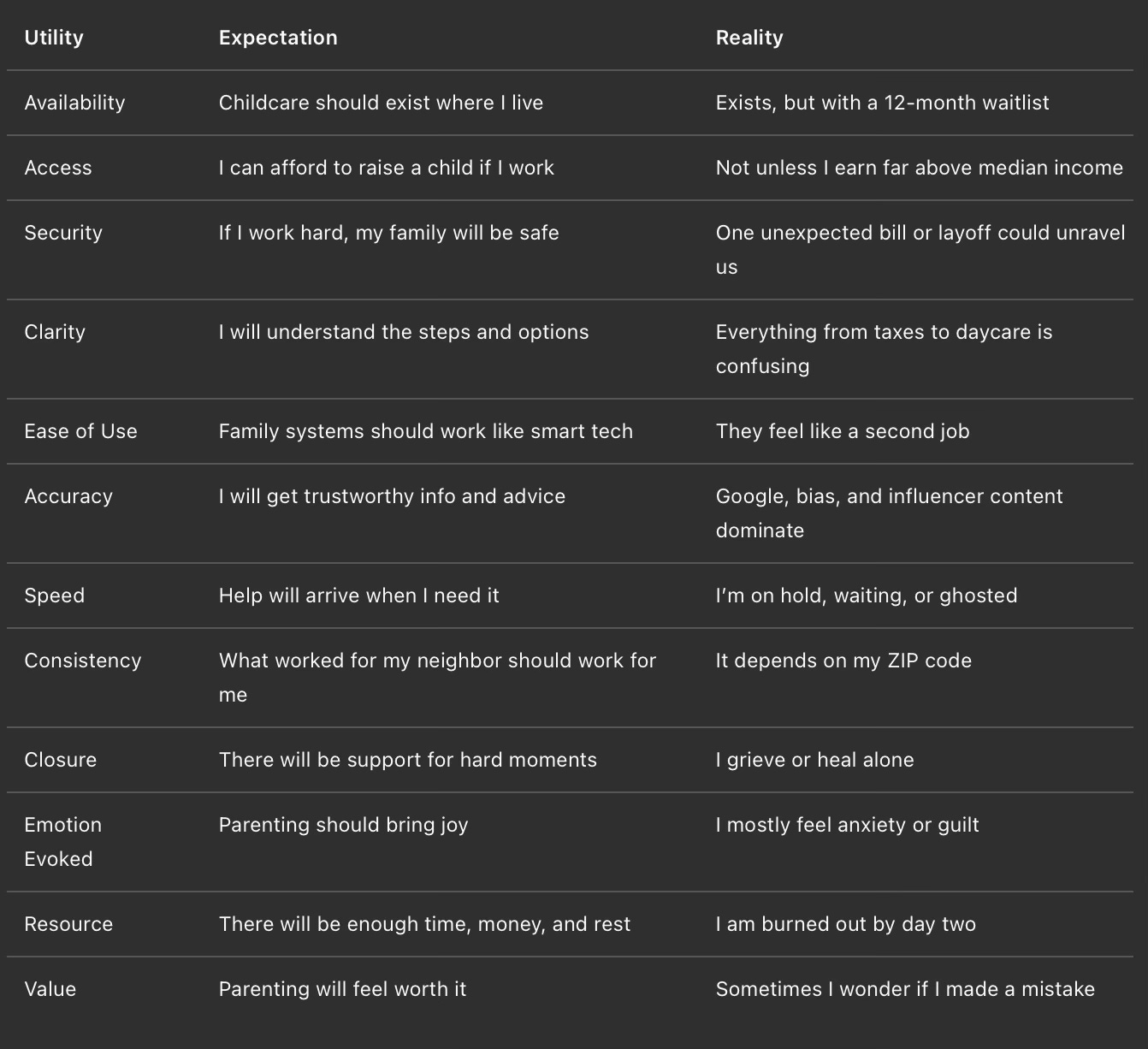The Utilities: Why Fewer Americans Are Saying "Yes" To Family
From the THX Series Hub: Flourishing Families
A THX Deep Dive on the Everyday Breakdown Behind Modern Family Choices
“It’s not that we don’t want families. It’s that we can’t afford to fail at them.”
OVERVIEW
Birth and marriage rates are declining in America. While conservatives argue this is a cultural or moral crisis, and liberals point to economic barriers, the THX framework shows something deeper: a breakdown across multiple dimensions of human experience. This isn’t just about affordability—it’s about utility, emotional wellbeing, admiration, and the subtle micro-moments that shape every decision.
We will explore this topic in four interrelated parts. This first article focuses on the 12 Utilities: the functional elements of modern life that must be stable enough to support family formation—and how their failures stack up.
PART I: THE 12 UTILITIES — A SCORECARD OF MODERN FAMILY LIFE
We begin with the practical: the things people count on to make life work. Each utility represents a domain where expectations are set and measured. When those expectations aren't met—or when perceived losses outweigh gains—people opt out.
Here’s how the utility scorecard looks:
⚖️ Insight: This is a utility crisis—one that Prospect Theory helps us understand: the fear of loss outweighs the hope of gain.
We can also frame this through Expectation vs. Reality at a glance:
🔍 Example: When Every Utility Fails at Once
In my own life, I had the lead role in raising my daughters from birth. My ex returned to work after eight weeks, and I became the default caregiver—managing daycare drop-offs, doctor visits, school pickups, and later, solo parenting through high school. When we separated, they lived with me full-time. I drove them to school, to work, to activities, to medical appointments—while also trying to keep a business afloat.
Without extended family nearby or reliable community infrastructure, I had to cut back on travel and piece together freelance work just to stay present. The support systems I needed didn’t exist. There were no backups, no resets. And when the Resource utility breaks, all the others begin to crack with it. I constantly felt like I couldn’t meet the expectations of society—or even my own.
NEXT: THE PERMAH FRAMEWORK
In the next article, we’ll explore how unmet expectations in utility lead to emotional erosion. We’ll break down the six elements of flourishing—Positive Emotion, Engagement, Relationships, Meaning, Achievement, and Health—and how they shape or stall family decisions.

Interpretation: The heart/checkmark symbol reflects the tension between love and logistical readiness. Saying “yes” to family life now requires far more than desire—it demands functional systems that too often fall short.





